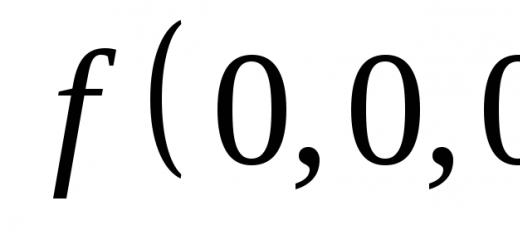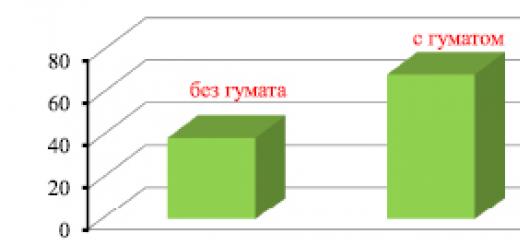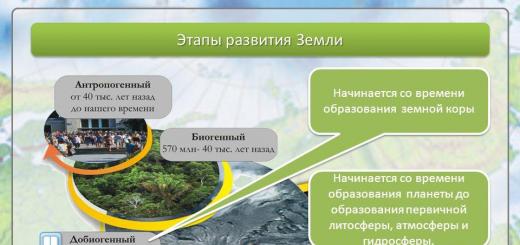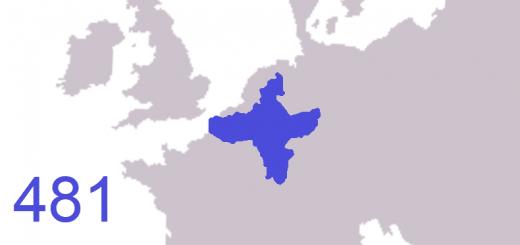Napoleon Bonaparte, the French emperor, was at the height of his success. After a series of brilliant victories from Austerlitz to Jena and Friedland, he defeated the armies of Austria, Prussia and Russia. In June 1807, when Russian military power was on the verge of devastation after Friedland, French cavalry captured Tilsit (later Sovetsk), on the Neman River. It served as the border between Russian and Prussian territories in Poland. The Russian army was completely in the wrong condition to continue the fight. As a result, Alexander I proposes to hold peace negotiations between him, Napoleon and the King of Prussia, Frederick William. Seeing an opportunity to strengthen his dominant position in Central Europe and further isolate Britain, Napoleon agrees.
Alexander, through an envoy, conveyed to Napoleon the possible advantages of an agreement between France and Russia: supposedly “this could ensure a happy existence and tranquility for the whole world.” A neutral territory in the middle of the river was chosen for negotiations, where the French hastily put together a ferry with two majestic white tents. The main tent had a large letter "H" in green, facing the French bank of the river, and a large "A" - towards Russia. The Prussians modestly noted that they had not prepared any identification marks for their king: they really found themselves in the worst position of all. The negotiators were taken to the ferry by boat for the first meeting, which took place on June 25.
The French ship made a breakthrough, which allowed Napoleon to arrive on the spot first and meet Emperor Alexander. The latter, as historical facts indicate, said: “Sire, I hate the British no less than you and therefore I am ready to assist any of your initiatives against them.” To which Napoleon replied: “In that case, everything is decided between us: peace is proclaimed.”
Discussions of all the nuances lasted for several days, interrupting only in the evenings for entertainment events. Napoleon and Alexander I dined together every day and often sat up late in private conversations. They greeted each other ceremoniously, walked around and exchanged handkerchiefs and scarves. Alexander ordered the Russian Orthodox Church to revoke the anathema declared against Napoleon in 1806. And this despite the subtle hints of Napoleon, who allegedly accidentally pointed out to Alexander I his dubious path to seizing the throne (suspicions of the parricide of Paul I, 1801). At this time, the French emperor was in correspondence with Josephine, where he described Queen Louise of Prussia as a very attractive lady who even flirted with him. But for the Emperor this is like water off a duck's back.
The difficulties during the negotiations were as follows:
Alexander, like other monarchs before and after, had his sights set on Constantinople, but Napoleon was determined not to allow Russia to gain one of the world's oldest capitals.
Alexander could not completely turn his back on Friedrich Wilhelm, since a couple of months ago he had sworn eternal brotherhood to him. Napoleon, in turn, intended to “lower” Prussia to the level of a second-class state, which could not interfere with his plans to seize power in Germany.
Napoleon was going to revive Poland in a certain form, but Alexander was afraid of this. After all, his Polish subjects could rebel more than ever if an independent Polish state arose.
Russia's economic well-being depended on trade ties with Britain, which Napoleon tried to isolate.
Napoleon used all the magic of persuasion he could, and it paid off. Alexander, blinded by the prospects of receiving the lion's share of Turkey after the coming division, decided to abandon his previous ambitions. Although he dreamed of freeing Western Europe from the encroachments of imperial France, the Russian monarch nevertheless decided to share governance of the world with Napoleon.
The agreement between France and Russia was signed on July 7, and between France and Prussia on July 9. The Peace of Tilsit implied the following: Russia and Prussia pledged to join the Continental System - a blockade aimed at destroying British trade. This was expressed in the closure of ports to British ships and neutral vessels associated with English trading activities. The parties showed humiliating contempt towards Prussia. Its territories were designated for several purposes. Part was allocated to create the new Grand Duchy of Warsaw, the rest of the lands fell into the hands of the king of Saxony, an ally of Napoleon, and his younger brother Jerome Bonaparte, who received the kingdom of Westphalia. According to the treaty, Prussia also had to reduce the army to 40 thousand people and pay huge compensation to the French, meanwhile providing its army to France until the money was completely transferred. The flirtatious Queen of Prussia was so stressed that she fell to her knees in front of Napoleon, begging for mercy, but he just waved her off.
The essence of the Peace of Tilsit was the signing of a secret agreement between two large empires, which pledged to help each other in matters of redistribution of power: France promised assistance to Russia in the issue of the Ottoman Empire, Russia agreed to participate in neutralizing the power of Britain.
Many influential people in Russia and Prussia dubbed the Peace of Tilsit as a shameful capitulation. At the end of 1810, Alexander opened Russian ports to neutral ships because continuing the blockade could harm his country's economy. Napoleon did not keep himself waiting long and attacked Russia in 1812.
Plan
Introduction
1. History
2 Terms of peace
Introduction
The Peace of Tilsit was concluded on June 25, 1807 between Alexander I and Napoleon after the war of 1806 and 1807, in which Russia helped Prussia.
1. History
On June 14, 1807, Napoleon defeated Bennigsen's Russian army at Friedland. Alexander I, having received this news, ordered Lobanov-Rostovsky to go to the French camp to negotiate peace. General Kalkreuth also came to Napoleon on behalf of the Prussian king, but Napoleon strongly emphasized that he was making peace with the Russian emperor. Napoleon at that time was on the banks of the Neman, in the town of Tilsit; the Russian army and the remnants of the Prussian army stood on the other bank. Prince Lobanov conveyed to Napoleon the desire of Emperor Alexander to see him personally.
The next day, June 25, 1807, both emperors met on a raft placed in the middle of the river, and talked face to face for about an hour in a covered pavilion. The next day they saw each other again in Tilsit; Alexander I attended the review of the French Guard. Napoleon wanted not only peace, but also an alliance with Alexander and pointed him to the Balkan Peninsula and Finland as a reward for helping France in its endeavors; but he did not agree to give Constantinople to Russia. If Napoleon was counting on the charming impression of his personality, then he soon had to admit that his calculations were too optimistic: Alexander, with his gentle smile, soft speech, and kind demeanor, was not at all as accommodating even in difficult circumstances as his new ally would like. “This is a real Byzantine” (fr. C'est un veritable grec du Bas-Empire) - Napoleon said to his entourage.
However, on one point, Alexander I showed himself ready to make concessions - regarding the fate of Prussia: more than half of the Prussian possessions were taken by Napoleon from Frederick William III. The provinces on the left bank of the Elbe were given by Napoleon to his brother Jerome. Poland was restored - however, not from all the former provinces, only from the Prussian part under the name of the Duchy of Warsaw. Russia received the Bialystok department as compensation, from which the Bialystok region was formed. Gdansk (Danzig) became a free city. All earlier monarchs installed by Napoleon were recognized by Russia and Prussia. As a sign of respect to the Russian Emperor (fr. en considération de l'empereur de Russie) Napoleon left old Prussia, Brandenburg, Pomerania and Silesia to the Prussian king. In case the French emperor wished to add Hanover to his conquests, it was decided to reward Prussia with territory on the left bank of the Elbe.
The main point of the Tilsit Treaty was not published at that time: Russia and France pledged to help each other in any offensive and defensive war, wherever circumstances required it. This close alliance eliminated Napoleon's only strong rival on the continent; England remained isolated; both powers pledged to use all measures to force the rest of Europe to comply with the continental system. On July 8, 1807, the treaty was signed by both emperors. The Peace of Tilsit elevated Napoleon to the pinnacle of power, and put Emperor Alexander in a difficult position. The feeling of resentment in capital circles was great. “Tilsit!.. (at this offensive sound / Now Russia will not turn pale),” wrote Alexander Pushkin 14 years later. The Patriotic War of 1812 was subsequently looked upon precisely as an event that “made amends” for the Tilsit Peace. In general, the significance of the Peace of Tilsit was very great: from 1807 Napoleon began to rule much more boldly in Europe than before.
2. Peace terms
· Russia recognized all of Napoleon's conquests.
· Russia's joining the continental blockade against England (secret agreement). Russia must completely abandon trade with its main partner (in particular, the terms of the peace treaty ordered Russia to completely exclude the export of hemp to the UK).
· Russia and France pledged to help each other in every offensive and defensive war, wherever circumstances require it.
· On the territory of the Polish possessions of Prussia, the Duchy of Warsaw was formed, dependent on France.
· The territory of Prussia was significantly reduced (Polish regions were torn away), although it was preserved as an independent state and turned into a state dependent on France.
· Russia withdrew its troops from Moldova and Wallachia, conquered from Turkey.
· Russia tacitly pledged not to interfere with Napoleon's establishment of control over the Ionian Islands, and a few months later they became part of the Illyrian provinces of France.
· Russia's recognition of Joseph Bonaparte as the King of Naples, Ludwik Bonaparte as the King of the Netherlands, and Jerome Bonaparte as the King of Westphalia.
· Recognition of the Rhine Confederation by Russia.
Literature
· Schilder, “Imper. Alexander I" (1900)
· Vandal, “Alexandre I et Napoleon” (Par., 1897)
When writing this article, material was used from the Encyclopedic Dictionary of Brockhaus and Efron (1890-1907).
After the War of the Fourth Coalition - 1807, in which Russia helped Prussia.
Encyclopedic YouTube
1 / 3
✪ History | World of Tilsit
✪ Napoleonic Wars (Russian) New history
Subtitles
Story
The main point of the Tilsit Treaty was not published at that time: Russia and France pledged to help each other in any offensive and defensive war, wherever circumstances required it. This close alliance eliminated Napoleon's only strong rival on the continent; England remained isolated; both powers pledged to use all measures to force the rest of Europe to comply with the continental system. On July 7, 1807, the treaty was signed by both emperors. The Peace of Tilsit elevated Napoleon to the pinnacle of power, and put Emperor Alexander in a difficult position. The feeling of resentment in capital circles was great. “Tilsit!.. (at this offensive sound / Now Russia will not turn pale),” wrote Alexander Pushkin 14 years later. The Patriotic War of 1812 was subsequently looked upon precisely as the event that “made amends” for the Tilsit Peace. In general, the significance of the Peace of Tilsit was very great: from 1807, Napoleon began to rule much more boldly in Europe than before.
Terms of the Peace of Tilsit
- Russia recognized all of Napoleon's conquests.
- Russia's joining the continental blockade against England (secret agreement). Russia must completely abandon trade with its main partner (in particular, the terms of the peace treaty ordered Russia to completely exclude the export of hemp to the UK) and, together with France, influence Austria, Denmark, Sweden and Portugal with the same goals.
- Russia and France pledged to help each other in every offensive and defensive war, wherever circumstances require it. So, during the war with Sweden (1808-1809), with the support of France, Russia acquired Finland. At the same time, assistance to France in its war with Austria in 1809, an auxiliary corps under the terms of peace, was not actually provided by Russia.
- On the territory of the Polish possessions of Prussia, the Duchy of Warsaw, dependent on France, was formed.
- The territory of Prussia was significantly reduced (the Polish regions were torn away, as well as Hanover, County Mark, occupied by Prussia in 1806, with the cities of Essen, Verden and Lippstadt, County Ravensberg, the cities of Lingen and Tecklenburg, the Principalities of Minden, East Frisia, Munster, Paderborn, Kleve and eastern bank of the Rhine), although it was retained as an independent state and turned into a state dependent on France. Joseph Bonaparte as the King of Naples and Louis Bonaparte as the King of the Netherlands, Jerome Bonaparte as the King of Westphalia.
- Recognition by Russia
Prerequisites for the emergence of an agreement
As of 1807, the situation in Europe looked very interesting - almost the entire continent was completely captured by French troops. In his autobiography, Napoleon wrote that for the complete conquest of Europe, the destruction of England was a prerequisite. As for Russia, here he saw his ally rather than his enemy. It is likely that this was the key reason for the creation of the Tilsit world, why it even received its right to exist. Of course, it doesn’t stop there; in fact, Napoleon himself for a long time hatched a plan to destroy England, and he would not have been able to defeat the enemy at sea. Thus, Napoleon decided to create a peace treaty with Russia, which would create a united front for fighting with England. Alexander 1, in turn, understood perfectly well that his coalition with Prussia, England and Sweden had collapsed, since Napoleon won victory after victory, and the position of the allies became more and more precarious every day.Negotiation
In general, Russia’s position at that time was extremely precarious. The last defeat of Alexander's army played a major role in this. As a result, he decided to put forward only two conditions of his own:
The meeting with France must take place on no man's land, independent land. Not on the territory of France, Russia and their satellites.
Russia does not recognize any claims to the geographical integrity of its side.
Napoleon nevertheless convinced the Russian ambassadors that both points put forward by Alexander would be fulfilled in full, without exception. Thus, he was the first to open the way for a meeting with the Russian emperor.
It was decided to hold negotiations between Russia and France on the Neman River, and in its middle. A special raft was installed there, where the tent was deployed. There both emperors of the greatest states met. Negotiations took place on June 25, 1807, and they became the basis for the signing of the Peace of Tilsit.
Judging by historical documents, one can find references to Alexander, where he assures Bonaparte that from the moment the peace agreement is created, England will be the only common enemy for both countries. Napoleon, in turn, noted that in this case no problems would arise in terms of creating a peace agreement between Russia and France.
Many history textbooks confirm this. However, none of them indicate the reasons why France and Russia fought a war with each other for six long years, despite the fact that they had a common enemy and it seemed that all agreements were respected, without any or disagreements.
The fate of Prussia
 The negotiations themselves between the two emperors of the most powerful and powerful states at that time lasted no more than one hour. During this time, the Emperor of Prussia stood and waited on the river bank. He hoped and counted on the fact that the Emperor of France would agree to receive him so that they could jointly discuss the future fate of the German state. Despite this, Bonaparte was firm in his intention - Prussia must at all costs disappear from the face of the map of Europe. Actually, Napoleon proposed to Alexander, citing the fact that: “This is a vile nation, led by a vile monarch, with a vile army under his command. They have always betrayed everyone, and do not deserve to continue to exist.” Russia's participation in the war helped preserve Prussia as a state.
The negotiations themselves between the two emperors of the most powerful and powerful states at that time lasted no more than one hour. During this time, the Emperor of Prussia stood and waited on the river bank. He hoped and counted on the fact that the Emperor of France would agree to receive him so that they could jointly discuss the future fate of the German state. Despite this, Bonaparte was firm in his intention - Prussia must at all costs disappear from the face of the map of Europe. Actually, Napoleon proposed to Alexander, citing the fact that: “This is a vile nation, led by a vile monarch, with a vile army under his command. They have always betrayed everyone, and do not deserve to continue to exist.” Russia's participation in the war helped preserve Prussia as a state. Terms of the peace agreement
As was said, negotiations between the emperors of the two powers took place very quickly. Despite the fact that they lasted only one hour, they managed to agree on everything. The emperors' stay in Tilsit lasted two whole weeks. Oddly enough, the emperors during this period of time were practically inseparable, like friends who had known each other since childhood. Of course, in this way they tried to create prospects for signing peace. Actually, the Peace of Tilsit was signed. Its conditions were:
Russia recognizes all territories conquered by Napoleon in Europe.
Russian troops join the continental blockade against England. This meant that Alexander completely broke all trade and other agreements with England and prohibited the entry of sea vessels into the territories owned by Russia.
A military alliance is signed between France and Russia, under the terms of which each power is obliged to support the other in the event of any military action. For example, during offensive or defensive actions.
Polish lands departed from Prussia. A new state was created on this territory - the Duchy of Warsaw, which was directly dependent on France.
Russia must recognize all proteges who were placed by Napoleon on the throne of various European powers.
France ceases to provide any assistance to Turkey, and Russia, in response, is obliged to withdraw its troops from the territory of Moldova and Wallachia.
Absolute recognition, by all parties to the agreements, of the previously created Rhineland Union.
The meaning of the Peace of Tilsit
The Peace of Tilsit turned out to be extremely beneficial for the emperors of both countries, which they undoubtedly were happy about. However, despite its positive “impact”, the Peace of Tilsit did not last so long - until 1812, when the Patriotic War began.
Between Alexander I and Napoleon after the war and in which Russia helped Prussia.
On June 14, 1807, Napoleon defeated the Russian army of Bennigsen at Friedland. Alexander I, having received this news, ordered Lobanov-Rostovsky to go to the French camp to negotiate peace. General Kalkreuth also came to Napoleon on behalf of the Prussian king, but Napoleon strongly emphasized that he was making peace with the Russian emperor. Napoleon at that time was on the banks of the Neman, in the town of Tilsit; the Russian army and the pitiful remnants of the Prussian army stood on the other bank.
Prince Lobanov conveyed to Napoleon the desire of Emperor Alexander to see him personally. The next day, June 25, 1807, both emperors met on a raft placed in the middle of the river, and talked face to face for about an hour in a covered pavilion. The next day they saw each other again in Tilsit; Alexander I attended the review of the French Guard. Napoleon wanted not only peace, but also an alliance with Alexander and pointed him to the Balkan Peninsula and Finland as a reward for helping France in its endeavors; but he did not agree to give Constantinople to Russia. If Napoleon was counting on the charming impression of his personality, then he soon had to admit that his calculations were too optimistic: Alexander, with his gentle smile, soft speech, and kind demeanor, was not at all as accommodating even in difficult circumstances as his new ally would like. “C’est un véritable grec du Bas-Empire,” Napoleon said to his entourage.
However, on one point, Alexander I showed himself ready to make concessions - regarding the fate of Prussia: more than half of the Prussian possessions were taken by Napoleon from Frederick William III. The provinces on the left bank of the Elbe were given by Napoleon to his brother Jerome. Poland was restored - however, not from all former provinces, only from the Prussian part under the name of the Duchy of Warsaw. Russia received the Bialystok department as compensation, from which the Bialystok region was formed. Gdansk (Danzig) became a free city. All earlier monarchs installed by Napoleon were recognized by Russia and Prussia. As a sign of respect for the Russian emperor (en considération de l’empereur de Russie), Napoleon left old Prussia, Brandenburg, Pomerania and Silesia to the Prussian king. In case the French emperor wished to add Hanover to his conquests, it was decided to reward Prussia with territory on the left bank of the Elbe.
Imperial embrace on a raft. (Meeting in Tilsit). English caricature unknown. thin 1800s
The main point of the Tilsit Treaty was not published at that time: Russia and France pledged to help each other in any offensive and defensive war, wherever circumstances required it. This close alliance eliminated Napoleon's only strong rival on the continent; England remained isolated; both powers pledged to use all measures to force the rest of Europe to comply with the continental system. On July 8, 1807, the treaty was signed by both emperors. The Peace of Tilsit elevated Napoleon to the pinnacle of power, and put Emperor Alexander in a difficult position. The feeling of resentment in capital circles was great. “Tilsit!.. (at this offensive sound / Now Ross will not turn pale),” wrote 14 years later










